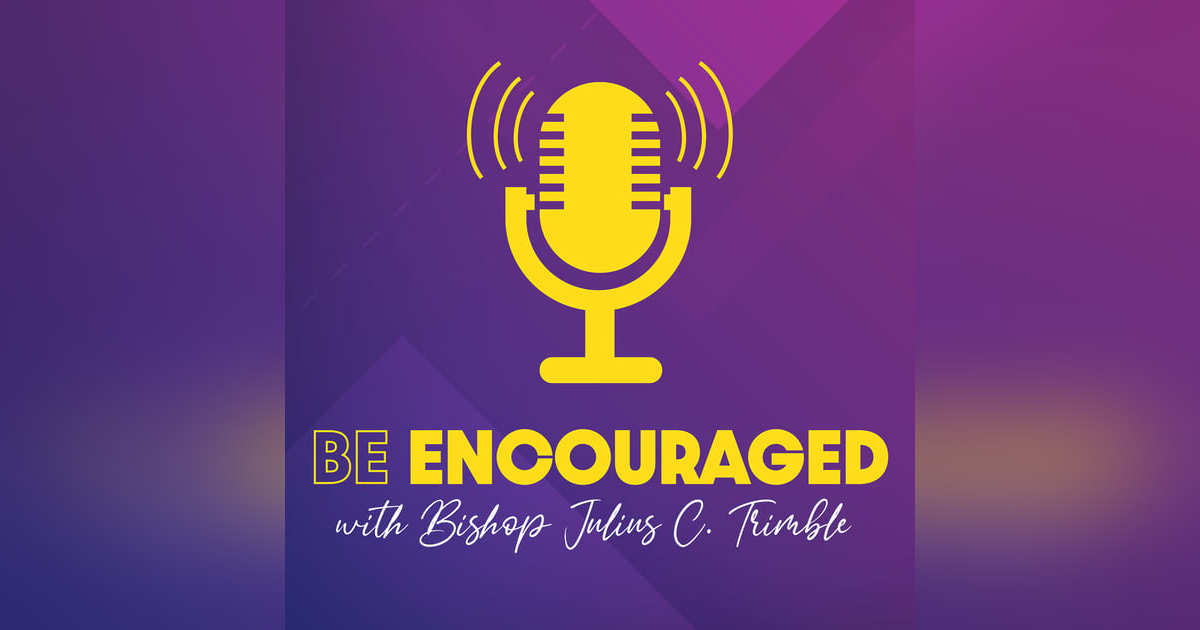Transition and Transformation: Bishop Trimble's New Role as General Secretary of Board of Church and Society in the UMC

Bishop Julius C. Trimble is the Resident Bishop of the Indiana Area of the United Methodist Church.
Bishop Trimble has the personal mission to encourage all people with the love of Jesus Christ to rise to their highest potential. It is his commitment to his personal mission that led Bishop Trimble to create the “To Be Encouraged” Podcast along with co-host Rev.Dr. Brad Miller.
Bishop Trimble says, “I am compelled by Jesus to share with you an encouraging word or two about Jesus, theology, the Bible, the pandemic, the environment, racism, voting rights, human sexuality, and the state of the United Methodist Church.”
To Be Encouraged with Bishop Julius C. Trimble is to be published weekly and is available at www.tobeencouraged.com and all the podcast directories.
https://www.inumc.org/bishop/office-of-the-bishop/
### Show Notes for Episode 116 of "To Be Encouraged" Podcast
**Episode Title:** "Transition and Transformation: Bishop Trimble's New Role as General Secretary of Board of Church and Society in the UMC"
Hosts:
* Bishop Julius C. Trimble
* Rev. Dr. Brad Miller
In this soul-stirring episode of "To Be Encouraged," Rev. Dr. Brad Miller engages in a profound conversation with Bishop Julius C. Trimble as he transitions from his role as the Bishop of the Indiana Area United Methodist Church to becoming the General Secretary of the Board of Church and Society. Recorded during the summer of 2024, Bishop Trimble shares his journey, highlighting God's new plans for him and shedding light on his passionate commitment to social justice and peacemaking.
### Summary:
Rev. Dr. Brad Miller welcomes Bishop Julius C. Trimble for a heartfelt conversation focusing on what lies ahead for the Bishop. Known for his unwavering encouragement and spiritual leadership, Bishop Trimble expresses his eagerness to continue serving God, albeit in a different capacity. As he transitions from overseeing the Indiana Area United Methodist Church, he steps into the significant role of General Secretary of the Board of Church and Society.
### Key Takeaways:
1. **A Life of Encouragement:**
Bishop Trimble reflects on his long-standing role as an instrument of encouragement, stating his intent to continue uplifting various communities. His personal mission to inspire others aligns seamlessly with his new responsibilities, providing hope and advocacy through the Board of Church and Society.
2. **Purposeful Transition:**
Towards the end of his tenure as the Bishop, Trimble sought divine guidance on how to serve next. His new role was a surprising yet fitting next step, bridging his leadership experience and passion for social justice. This transition illustrates the importance of remaining open to God's plans, even when they diverge from expected paths.
3. **Impactful Work of the Board of Church and Society:**
Bishop Trimble delves into the vital work of the Board, dedicated to living faith, seeking justice, and pursuing peace. He emphasizes the Board’s role in advocating for the marginalized, addressing issues such as hunger, civil rights, climate care, and more. His experience as a former board member and community activist uniquely positions him to lead these efforts effectively.
4. **Prophetic Voice and Local Church Engagement:**
One of the central themes of the discussion is the prophetic role of the church in modern society. Bishop Trimble encourages local church leaders to not shy away from social issues, providing concrete examples of how they can integrate these concerns into their ministries. He underscores the need for churches to act on their stated values, moving beyond words to actionable faith.
5. **Encouragement and Vision:**
Finally, the episode closes with a word of encouragement from Bishop Trimble, drawing from the prophet Micah. His message calls for humility, service, compassion, and the pursuit of justice, resonating deeply in today’s often tumultuous world. It’s a touching reminder that no one should be left behind in the spiritual and social mission of the church.
Join Rev. Dr. Brad Miller and Bishop Julius C. Trimble as they explore these meaningful transitions and the work ahead in this inspiring episode of "To Be Encouraged." Listen in to find encouragement and guidance for both individual and communal spiritual journeys.


